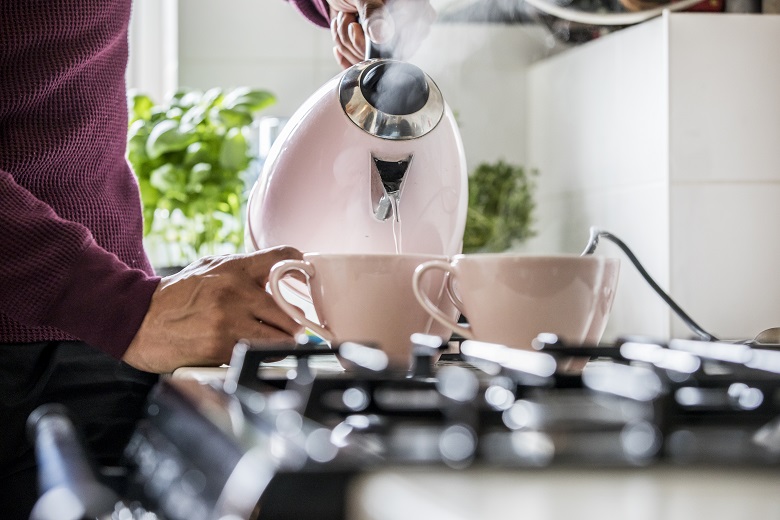Hard water

Hard water or water hardness is caused by the amount of minerals present. This is a natural occurrence in the geology of the landscape.
We're unable to control water hardness as it’s a characteristic of the water at the source. Most of the water in the South-East of England is hard in nature.
Research shows that minerals in hard water is good for us, especially for our bones. It’s not considered harmful.
Different types of hard water
We source 65% of our water from local rivers and 35% from natural reservoirs underground. This means it passes through soft chalky limestone many times. That’s why all the water in our region is hard.
Hard water can be broken into different categories and varies based on the local geology.
|
Hardness of water |
Water hardness (mg/l CaCO3) |
|---|---|
| Soft | up to 100 |
| Slightly hard | 100 -150 |
| Moderately hard | 150 - 200 |
| Hard | 200 - 300 |
| Very hard | More than 300 |
How to reduce the effects of hard water scale
Hard water can sometimes leave behind a chalky residue called limescale. To prevent this, you can:
Reduce the temperature of your hot water to 60 degrees
Put a steel scale collector in your kettle
Empty your kettle if you're not using it for a while
Install a water softener on household appliances*
*Please note we don’t recommend using softened water for drinking or cooking. If you choose to install a softener we advise that a separate tap should be installed. Your plumbing and softening unit should also be inspected regularly. This should be done by an approved plumber.
To reduce the build-up of scale deposits, you can install an electric descaler such as Scaleguard.
WhatsApp us
Message us on WhatsApp, so you can get on with your day and respond at your pace. We're available 24/7.